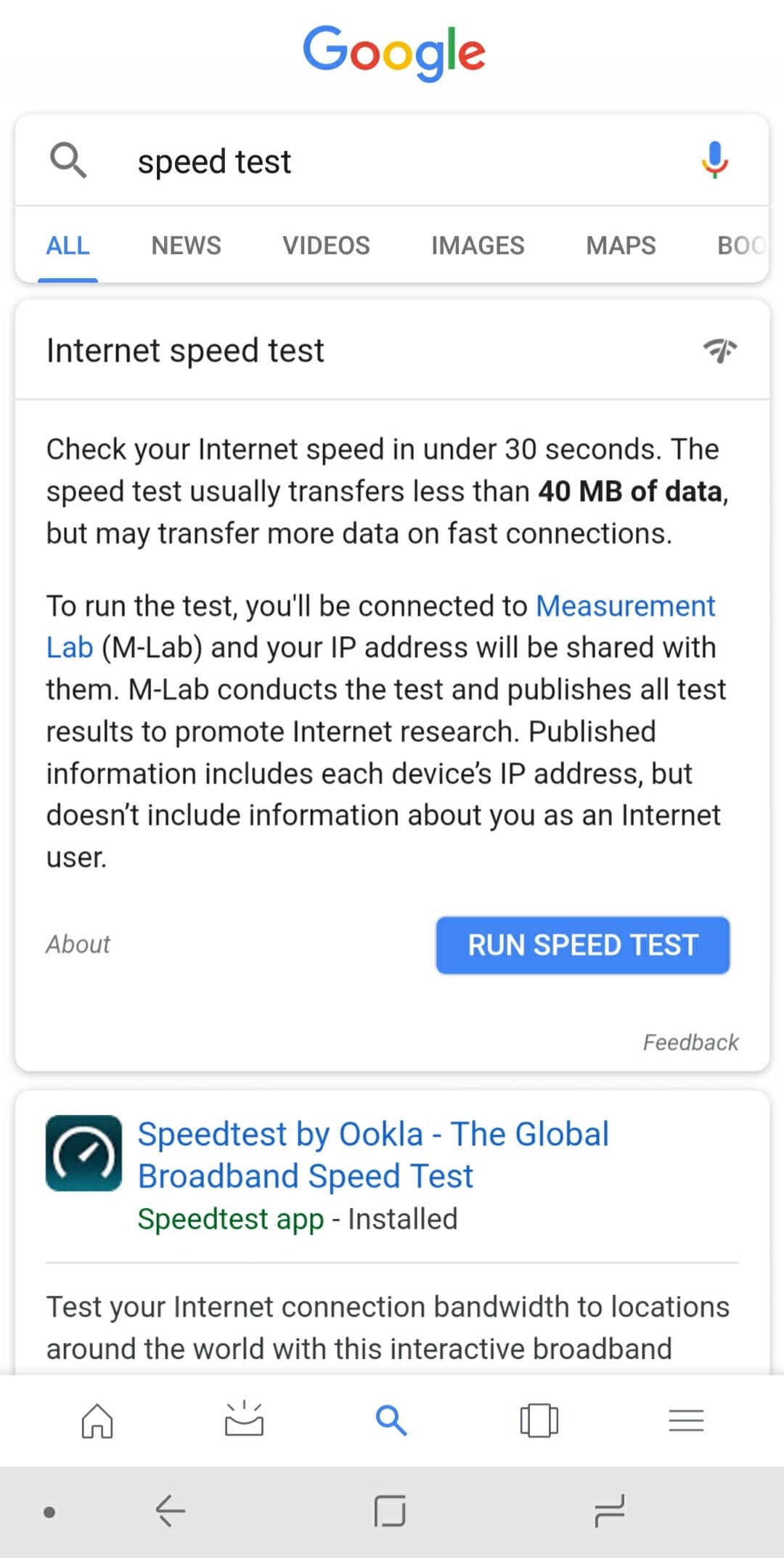There are dozens of sites and services that promise to test your internet speed. The most popular are:
Now you can also add Google to the list.
1 - Go to the Google Search Page (on a PC or Android device)
2 - Enter Speed Test
3 - Choose the Run Speed Test option and ignore the search results
4 - Wait until Google delivers your speed test results
Android Smartphones - This tool also works on Android devices. Just search for Speed Test on the Google search bar on your launcher and it will perform the same test and return results with a similar look & feel.
Some public WIFI hotspots seem to block it while allowing other services to run. Not sure why.
Does it work in other languages?
I tried the search on the Google Canada French site using both "Speed Test" and "test de vitesse" and I was not given the speed test web applet. Looks like this may be reserved for english language searches only for now.
Conclusion
Nothing special or different here but this could be one more feature in your cap. I do like the fact that Google interprets the results and explains (in plain English) what kind of video streaming performance you should be able to expect from your connection.















